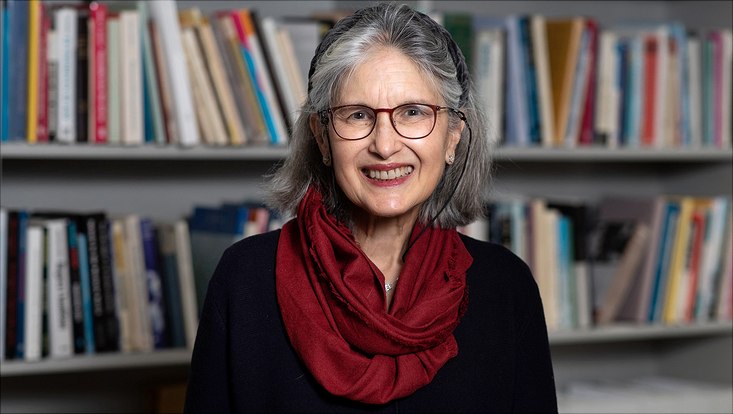Prof. em. Dr. Lorraine Daston
Photo: SCAS
Curriculum
Lorraine Daston is Director emerita at the Max Planck Institute for the History of Science, Berlin, regular Visiting Professor at the University of Chicago, and Permanent Fellow of the Wissenschaftskolleg zu Berlin. She has published broadly on topics such as the history of probability and statistics, wonders and science, objectivity, the moral authority of nature, the epistemic image, and scientific observation.
Publications (selection)
- Rules: A Short History of What We Live By, Princeton 2022.
- Gegen die Natur, Berlin 2018.
- Science in the Archives (ed.), Chicago 2017.
- With Peter Galison: Objectivity, Princeton 2007.
Research project: Imagining the World System: How Science Became an International Movement
In the early 19th century, the earth began to be imagined as an interconnected system of ocean currents, magnetic fields, and atmospheric electricity. By the latter half of the century, globe-spanning technologies of steamships and telegraph networks, as well as European imperialism, inspired some scientists to try to organize themselves into international organizations. Following the models of international movements, from women’s suffrage to the Universal Postal Union, these efforts created the first scientific community.
Research results: Imagining the World System: How Science Became an International Movement
My two-month stay (December 2022-January 2023) at the DFG CAS »Imaginaria of Force« enabled me to complete the manuscript of a book, tentatively entitled Science Goes Global, which will be published in Fall 2023 in the Columbia University Global Reports series. The book describes how science gradually became as global as the phenomena that it studies, from the first international collaborations in astronomy and meteorology in the eighteenth century to the emergence of the scientific community after World War II. I profited a great deal from the stimulating discussion that followed my presentation of one of the book’s chapters in December and from many other more informal conversations with the scholars of the CAS.

